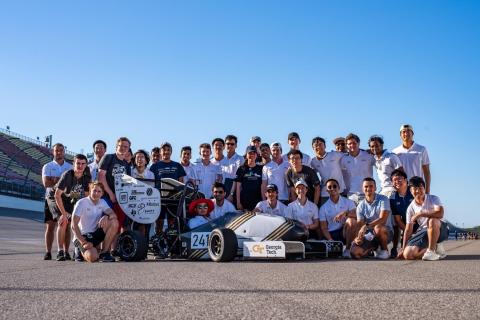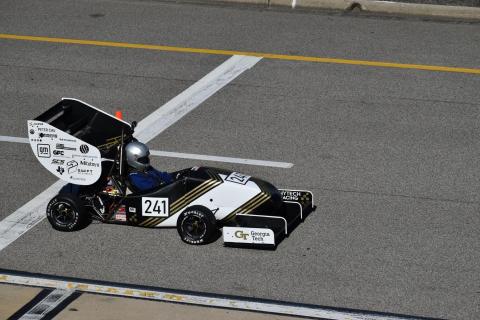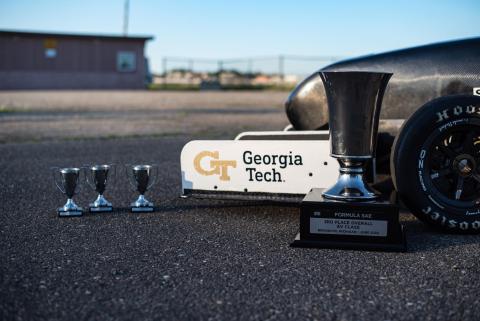HyTech Racing, Georgia Tech’s student-led electric racing team, placed third overall at the Formula SAE Electric Competition hosted at Michigan International Speedway earlier this summer.
HyTech Racing, Georgia Tech’s student-led electric racing team, placed third overall at the Formula SAE Electric Competition hosted at Michigan International Speedway. The competition challenges students from around the world to engineer the best performing electric formula race car.
This was Formula SAE Electric’s most competitive year yet, with 58 collegiate teams. HyTech’s 386-pound vehicle bested teams from other world-renowned engineering universities including McGill University, Carnegie Mellon University, and the University of Pennsylvania.
“Building a fast car requires a tremendous amount of innovation,” said Brendan Bassett, HyTech Racing president. “Members actively participated in all parts of car construction, including experimental circuitries, material characterization, and computational fluid dynamics.”
Formula SAE Electric competitions are not just car races. They involve a lengthy review process to ensure complete safety and compliance. Each team competes in two different types of events, static and dynamic. In static events, teams defend their vehicle costs, compete in supply chain and business case scenarios, and present and defend their designs to industry leaders. After passing all static events, team vehicles compete in the dynamic portion of the race. Cars compete for the fastest time on straight-line acceleration, skidpad, autocross (single lap), and endurance lap (22-lap) events.
This season, HyTech took on both ambitious design targets and an aggressive project schedule. Students from different disciplines cooperated to find creative solutions on a tight timeline.
“Our members put in countless long nights debugging and interfacing the vehicle’s subsystems in the Student Competition Center and at the MRDC parking lot,” said Bassett. “In the end, the team was able to produce a fundamentally competitive vehicle that delivered winning track times consistently.”
Next year, with the ever-evolving level of competition, the team will pivot to a four-wheel hub motor powertrain architecture, said David Knight, incoming chief engineer for the 2022-23 academic year. “This quantum leap in design complexity is necessary in order to unlock the full performance envelope of an electric race car.”
Learn more about HyTech Racing at hytechracing.gatech.edu.
Additional Images


